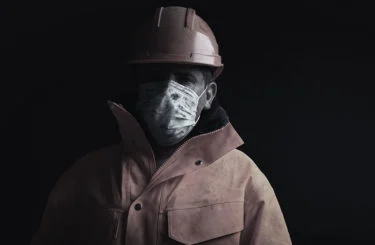Key Steps for Railroaders When Reporting Injuries on the Job
If you’re a railroader and you get injured on the job, it is critical that you report the accident to your employer as soon as possible, and absolutely before you leave the property. It is a good idea to call your union rep as well. There are several reasons for this:
- A personal injury report is required by the carrier’s rules and you could be disciplined for not doing so.
- Reporting the accident is the one way to ensure the railroad will not be able to later claim it never happened.
- Not reporting the accident can affect how much compensation your claim is worth down the road– or even cause a jury to turn your claim down at trial, especially if there are no other witnesses.
Immediately after an on the job accident, the company will have you fill out a personal injury report. That report should be brief and include only the following information:
- Your name, address, occupation and employee ID number;
- The time, date, and location of the accident;
- Your assignment at the time of the accident, when you started work, and the names of other employees working with you;
- The identification numbers of any equipment involved in the accident;
- Any defects in the equipment that led to your injury or any unsafe conditions that existed at the scene; and
- A specific mention that the railroad “failed to provide a safe place to work.”
This is the only information that should be in a personal injury report. You should not make any additional statements, either verbally or in writing, about how the accident happened. It is not unusual that the claims representative will show up and want to record a statement about the accident. If you are injured and feel you need medical attention you should insist that you be taken to a clinic. If you are in pain and do not feel well you should not give a statement and advise that you are in too much pain to concentrate. Delaying this part of the accident investigation will allow you to consult with your lawyer and find out what your rights are in this type of situation. Do not refuse to cooperate, as that could be considered insubordination, but simply ask to delay until you feel up to giving the statement.
As you are creating the personal injury report you should also record separately any other details about the accident. This will be important information for your lawyer. Also try to preserve any physical evidence from the accident, such as your clothing. If defective equipment is involved make sure to get the identification number on the equipment. This could be important if you later make a claim under FELA. If you can’t physically secure defective equipment, take photos and ensure they are documented with time and date.
Reporting an accident is mandatory under the rules of all railroads. However, be smart and remember that statements made early on can come back and hurt you down the road when your lawyer is trying to settle your claim. After making a personal injury report, you should then immediately contact an experienced FELA attorney to discuss the details of the accident and next steps.
Arvin J. Pearlman
Arvin Pearlman is nationally recognized for his work on behalf of railroad workers who were injured or killed in the course of their employment. Since concentrating his practice on Federal Employers Liability Act (FELA) litigation in 1979, Arvin has tried countless personal injury cases before judges and juries across the United States.





